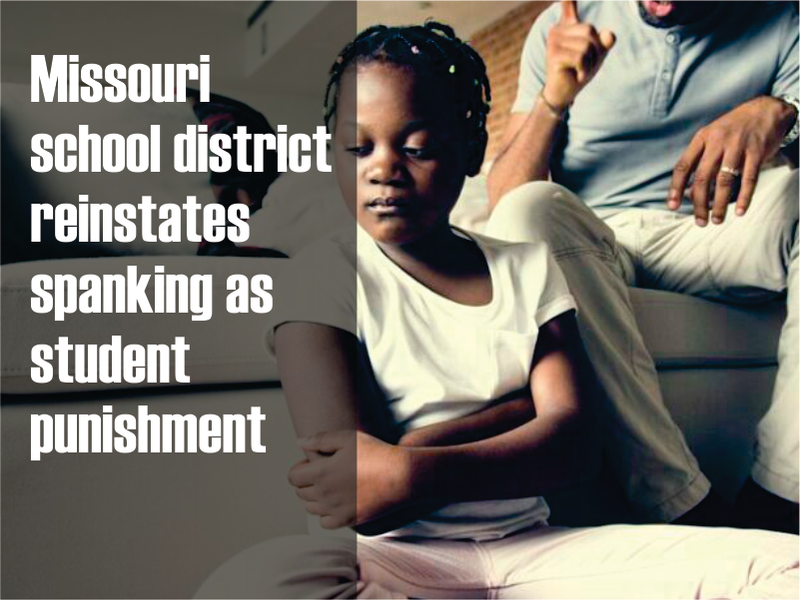The Cassville School District located in southwestern Missouri made the announcement just prior to the start of the 2022/2023 school year. It reinstates a policy that ended in 2001 and requires the permission of parents.
I was aware that sometime back in American history students were “paddled” by teachers or administrators as a way to correct so-called bad behavior. But surely this was a relic of the past no longer allowed today in our nation’s schools.
However, further investigation of the issue reveals while much of the western world bans corporal punishment in schools, here in the U.S. there is no federal ban. In 1977 the U.S. Supreme Court ruled school corporal punishment was constitutional leaving the issue of beating children in school to individual states.
Not surprisingly the majority of students who experience corporal punishment live in the south. According to U.S. Department of Education data from 2011–2012, 70 percent of students subjected to corporal punishment were from Alabama, Arkansas, Georgia, Mississippi and Texas with Mississippi and Texas accounting for 35 percent of the cases. This includes kindergarteners right up to high school age students.

Image Source: CDC, via Pexels
Meanwhile, students in the Cassville School District are mobilizing against the policy. Kalia Miller, 17, and a high school senior is one of students leading the charge. She says the re-instatement of corporal punishment is “frightening.”
She said, “Some students see it as abuse and it is abuse.”
Also saying nay to the policy are the American Academy of Child and Adolescent Psychiatry and the Association of Secondary School Principals (NAASP).
The NAASP cites: The disproportionate use of corporal punishment on Black students; potential adverse effects on students’ self-image and school achievement; correlation between school corporal punishment and increased truancy, drop-out rates, violence, and vandalism by youth; the potential for misuse or injury to students; and increased liability for schools.
The American Academy of Child and Adolescent Psychiatry states, “Supervising adults who will-fully humiliate children and punish by force and pain are often causing more harm than they prevent.”
But there are those who believe corporal punishment of students in school is appropriate. Some parents have stated that they were whacked in school so it’s ok now.
In strong disagreement with this thinking a Black parent in Mississippi said “the paddle symbolizes a legacy we are trying to out-live.”

Karen Warrington has had a decades long career as a broadcast journalist, communications professional, performing artist, and documentary filmmaker. She has traveled extensively throughout Africa, the Caribbean, Europe, and Asia. She is committed to being a voice for the African Diaspora.





